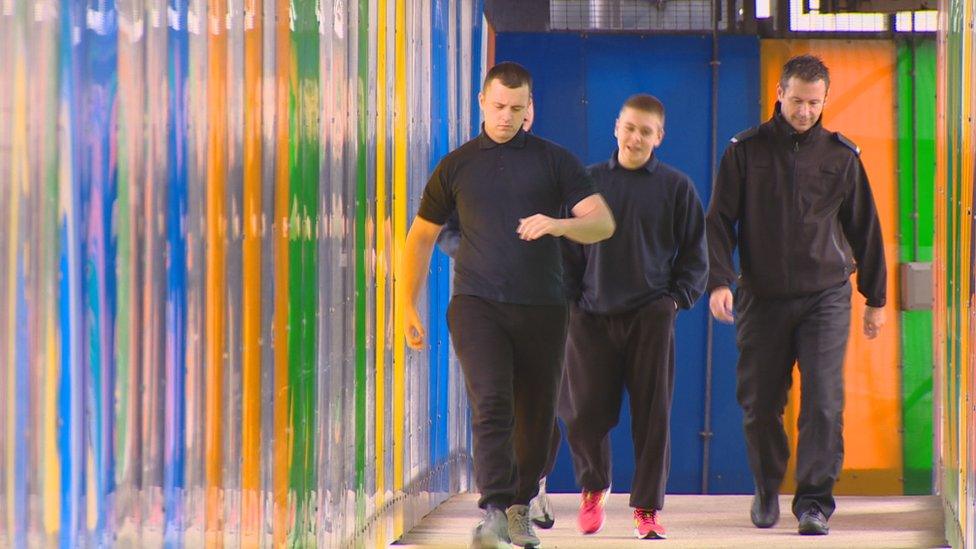Under-18s should not go to jail, says prison chief
- Published
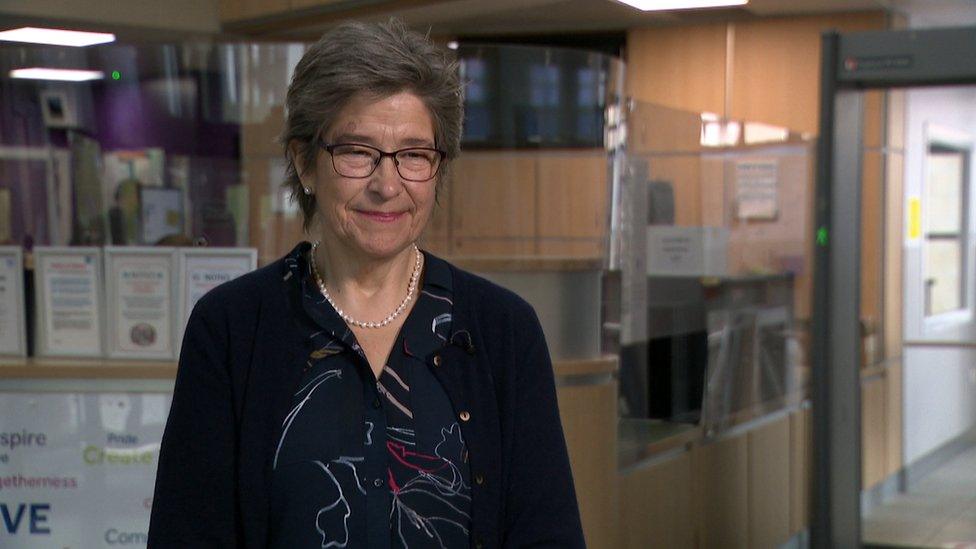
Wendy Sinclair Gieben is HM chief inspector of prisons in Scotland
No-one under 18 should be put in jail in Scotland, the chief inspector of prisons has said.
Wendy Sinclair Gieben has written to ministers calling for urgent legislation to end imprisonment of 16 and 17-year-olds by the end of March.
The chief inspector said the young offender institution at Polmont was in effect an adult prison.
The Scottish government has already committed to reducing the number of under 18s in prison.
Polmont is Scotland's national holding facility for male young offenders aged between 16 and 21.
Prisoners under the age of 21 are usually sent to the young offenders' institution until they are old enough for an adult prison.
However, the chief inspector said that even though it was doing a good job, Polmont was run as a prison, with the same restrictions.
A recent survey of a small number of 16 and 17-year-olds in Polmont found that 83% had been strip-searched, 42% had been isolated for punishment and 27% had been physically restrained.
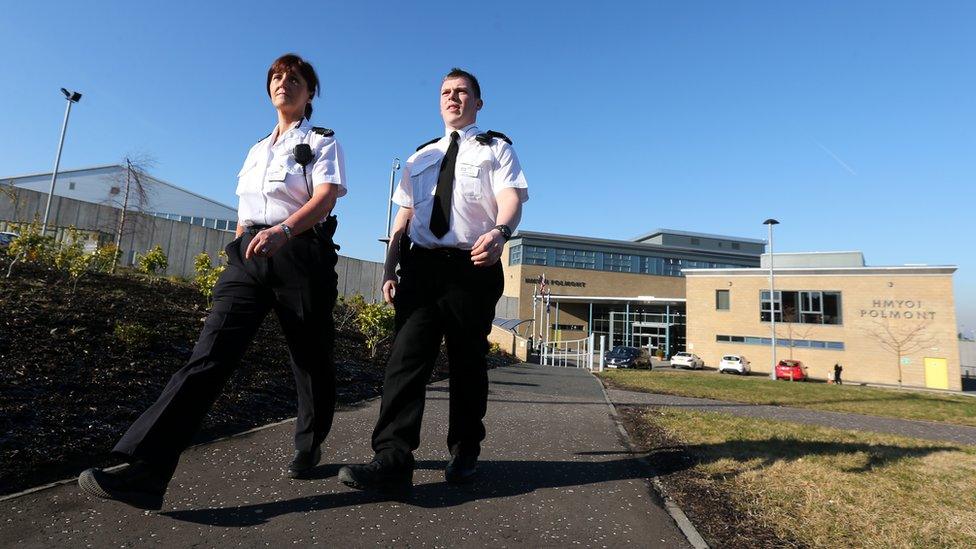
HMP YOI Polmont is for those under 21
Figures show that last year 120 under-18s were sent to prison in Scotland, with most being there on remand.
No-one under 16 is sent to prison and 16 and 17-year-olds are usually held separately in recognition of their vulnerability and care requirements.
But Ms Sinclair Gieben said sending children to young offenders' prison - especially when they have not yet been convicted - was a breach of their human rights.
She called for the Scottish government to directly fund places in secure accommodation instead. And her calls are echoed by the Children's Commissioner and others including the Children and Young People's Centre for Justice and Community Justice Scotland.
"We have to change the perception that people under 18 have to go to prison because their crimes are so offensive," Ms Sinclair Gieben said.
"In reality, the secure care system manages people with violent challenging behaviour extremely well and we need to allow them to do it."
The chief inspector acknowledged that some under-18s had committed the most serious crimes.
Aaron Campbell was 16 when he was sentenced to life for killing six-year-old Alesha Macphail on the Isle of Bute in 2018.
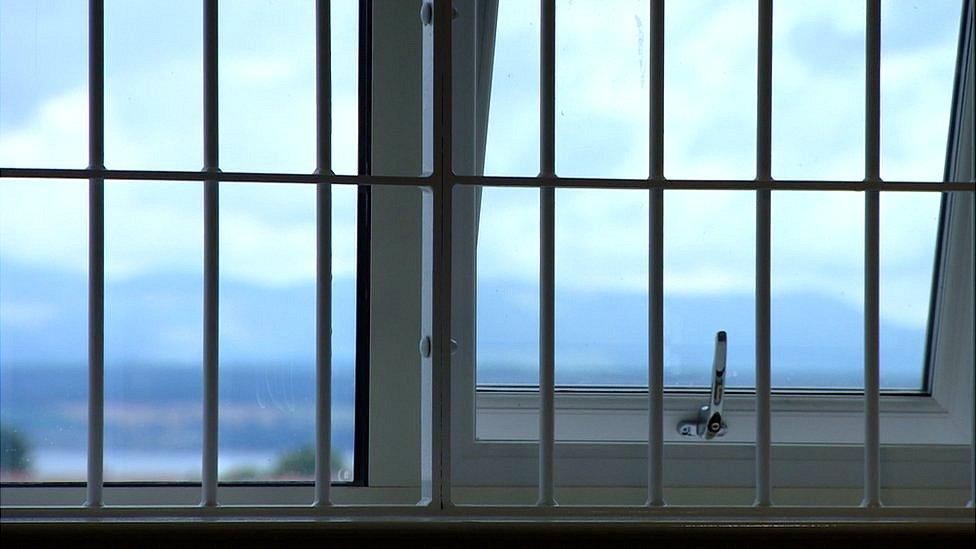
The chief inspector of prisons said the Young Offender Institution at Polmont was in effect an adult prison
But the chief inspector of prisons said someone aged 16 with a long sentence would go to secure care initially and then continue the rest of their sentence in prison.
She said: "We have to realise there will be people under the age of 18 who commit heinous crimes and they need to be in secure care but for everybody else custody must be a last resort.
"I have met too many children in here [Polmont] who are not in as a last resort.
"One boy was in here for seven days because he had nowhere else to live or children are in here because they were a protected witness. We should not be doing that, we should be looking at alternatives."

Polmont 'was a revolving door'
Jamie was 17 when he was sentenced to 16 months in custody.
He says he "was heartbroken" and missed his family.
He moved to Polmont on his 18th birthday. He says when he was in there were lots of 16 and 17-years olds there too.
"The people in there [Polmont] have got no hope at all to move on," he said.
"There's no hope to leave that stuff behind. You just get breakfast at seven and then you're dubbed [locked] up all day. Every day is like groundhog day.
"Secure care is better for young boys. I came out of secure with qualifications. With secure you build a relationship."
He says with Polmont "it was a revolving door".

Hayley McKenna, of Action for Children, works with young people like Jamie, to support them inside Polmont and when they get out.
She said: "I think having an organisation like us telling them what they can do when they get out helps give them aspirations and something to work towards.
"Last week I picked someone up who was getting liberated from custody and he was 19. He was talking about how amazing it was being out and I asked him how many times he had been in. He said that was the fourth time in two years."
Fiona Dyer, director of the Children and Young People's Centre for Justice said children often ended up in custody due to their perceived vulnerabilities or the risks to themselves - being homeless or having mental health problems or being victims of trafficking.
"Others are there because they have breached bail conditions due to insufficient support or understanding of the process, rather than because of the seriousness of their behaviour."
She said that evidence showed that authorities were failing vulnerable children.
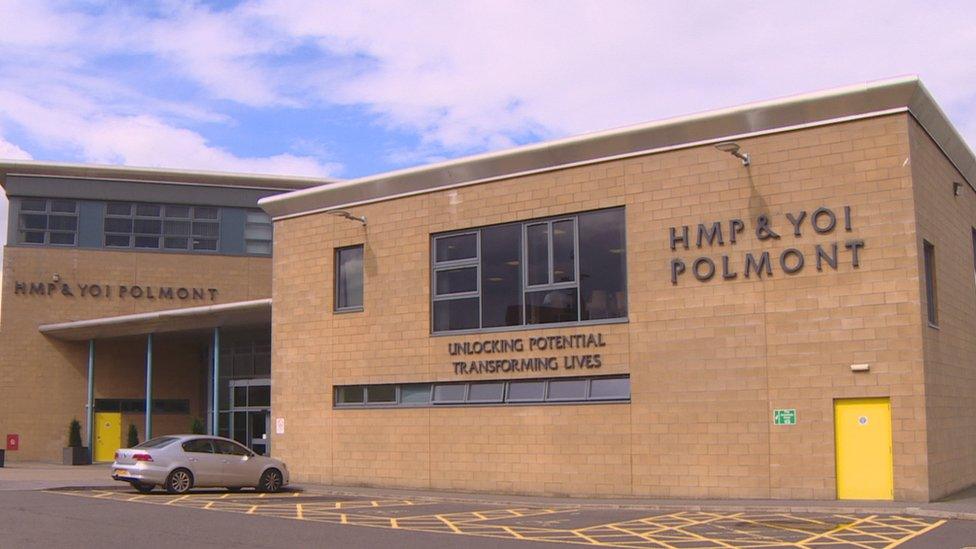
The children's commissioner said that imprisoning children did not comply with human rights laws
The Children and Young People's Commissioner said he was in full agreement that prison was never an appropriate environment for a child and that the inspector's proposal must be taken forward by Ministers.
Bruce Adamson said: "I have been clear with the Scottish government that imprisoning children does not comply with international human rights laws.
"Prison is never appropriate for a child, not least for those sent to prison due to a lack of alternative places in secure accommodation.
"The Scottish government has made a commitment to implement the findings and recommendations of the independent care review and prevent children being detained in prison by 2024."
However, he said the lack of urgency meant that the rights of several hundred more children would be breached, putting them at risk of long-term harm.
'A last resort'
A spokesman for the Scottish government said a consultation had recently taken place on proposed reforms to ensure that remand was a last resort, and that the responses to the consultation would inform legislative changes.
He continued: "Progress has been made with more needing to be done.
"Further legislation on bail law, release law and separately through a Children's Care and Justice Bill are all actions designed to minimise the harm caused to children through use of the criminal justice system, accepting that on occasion there will always be cases where a criminal justice response is required."
The Scottish Conservatives said the SNP's failure to deal with the court backlog had led to young people being inappropriately held on remand.
Justice spokesman Jamie Greene said: "However, the Scottish Conservatives believe that in cases of murder - such as those involving child killers Aaron Campbell and Luke Mitchell - prison is always the most appropriate punishment."
- Published4 August 2017
